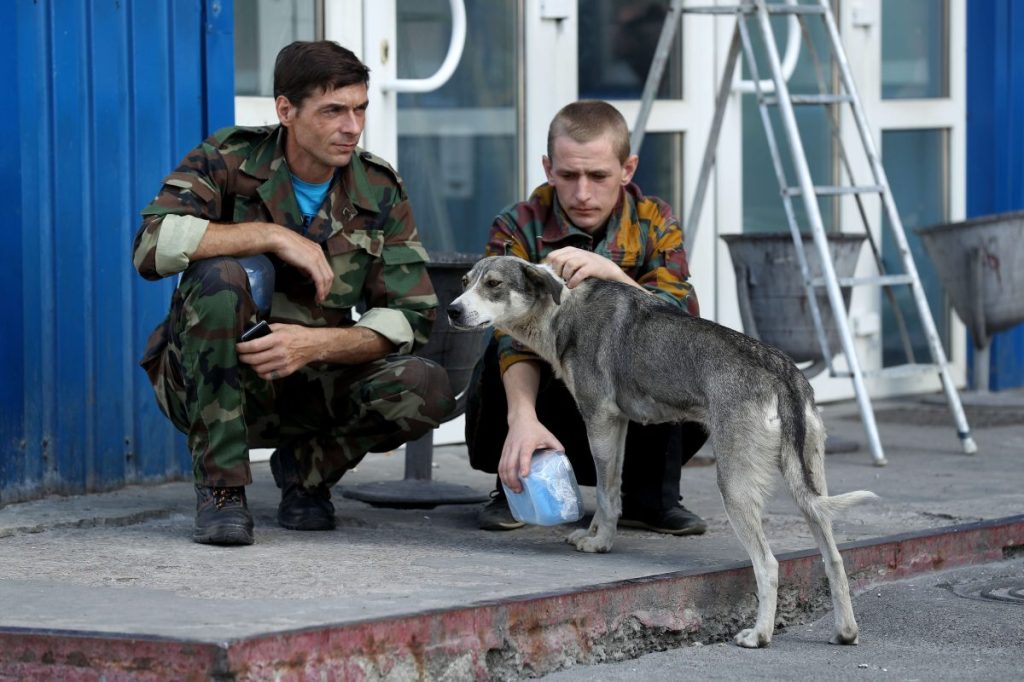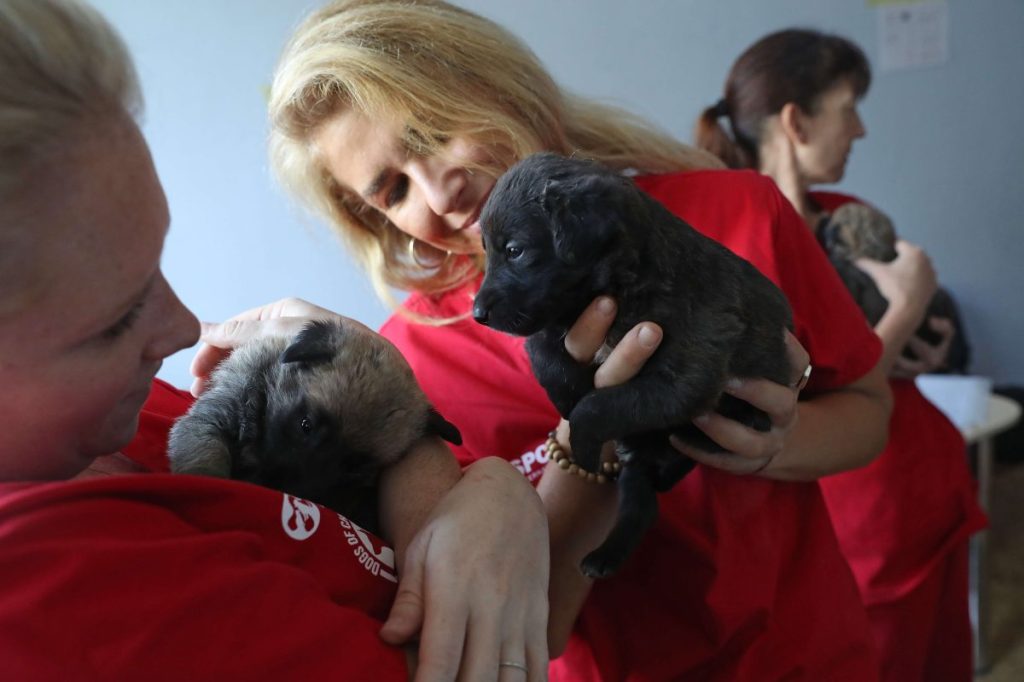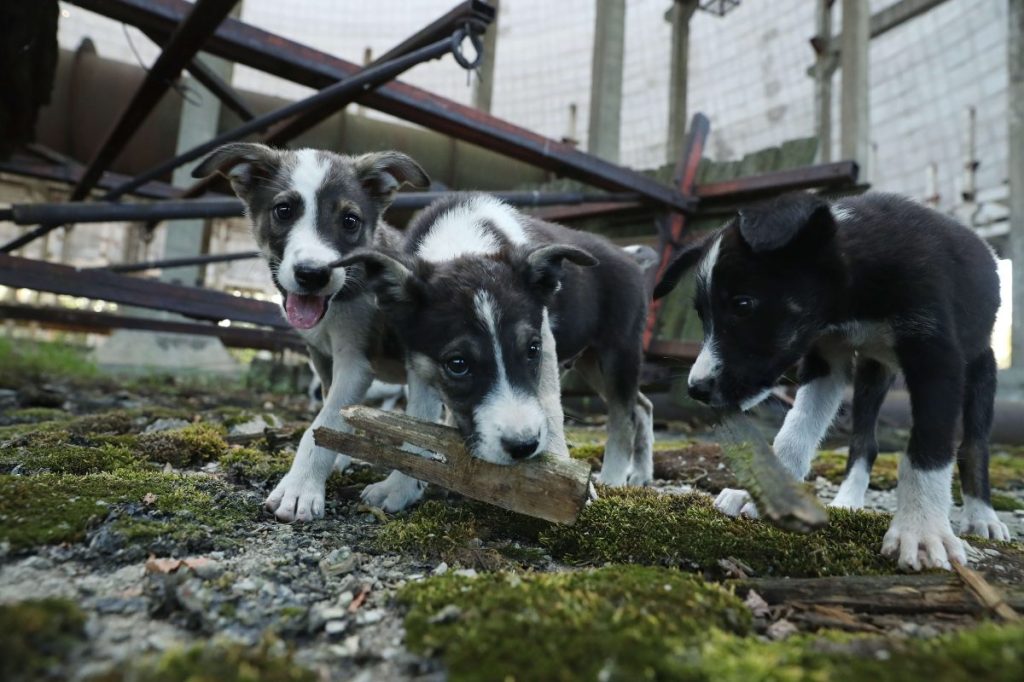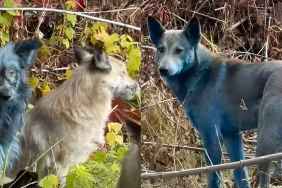In the early hours of April 26, 1986, a catastrophic explosion at the Chornobyl — or, as it is more commonly referred to, Chernobyl — Nuclear Reactor in Ukraine, then part of the Soviet Union, forever altered the course of history and science. As radioactive material spewed into the sky, the surrounding areas were evacuated, transforming bustling settlements into ghost towns overnight. Yet, while humans were forced to flee, animals — including hundreds of domestic dogs — were left behind. These canines would soon find themselves navigating an environment saturated with radiation and devoid of human companionship. Nearly four decades later, researchers are now unraveling how the dogs of Chernobyl managed to survive one of the world’s greatest nuclear disasters.
What happened to the dogs of Chernobyl?

The area surrounding the Chernobyl Power Plant, known as the Chernobyl Exclusion Zone (CEZ), has remained largely uninhabited by humans. In the aftermath of the accident, response teams searched for stray dogs with the intention of putting them down to prevent the further spread of radioactivity. However, against a backdrop of radiation, harsh climate, and limited resources, the dogs of Chernobyl have not just survived — they’ve thrived.
With their human caregivers gone, the canines were forced to fend for themselves. The abandoned buildings and structures within the zone provided them with shelter from the harsh weather, while the surrounding forests offered additional food sources in the form of small animals. Remarkably, over the decades, the feral dogs also formed complex social structures that likely contributed to their survival. Packs of dogs work together to hunt, safeguard their territory, and look after their young. This social cohesion is essential in an environment where resources are scarce and dangers are ever-present.
Study reveals genetic differences in dogs around the Chernobyl Exclusion Zone

In a 2023 study published in the journal Science Advances, scientists examined the genomes of 302 dogs living in and around the CEZ. The research has uncovered intriguing genetic distinctions between dogs living within the power plant and those in nearby areas such as Chernobyl City and Slavutych. The dogs residing in the immediate vicinity of the Chernobyl plant were more inbred and mainly descendants of German Shepherds. In contrast, dogs in the surrounding towns exhibited a more diverse genetic pool, resembling modern breeds found elsewhere. This inbreeding within the power plant dogs suggests a smaller, more isolated population, which may have contributed to unique genetic traits.
Interestingly, while these genetic differences are evident, scientists have yet to determine whether radiation directly caused them. According to Jim Smith, an environmental scientist at the University of Portsmouth who has studied the Chernobyl accident, it is difficult to pinpoint which genetic mutations result from radiation exposure versus other factors. However, this foundational research provides a baseline for further studies aimed at understanding the long-term impacts of low-level radiation exposure on animal genomes.
Impact of radiation on the evolution of other animals and living organisms
Radiation-induced mutations are not a novel concept. Researchers have already explored how radiation can accelerate natural selection and induce beneficial mutations. For instance, space scientists have been irradiating seeds in outer space to develop crops suited for changing climates. Within the CEZ, previous studies have documented other species — like bacteria, rodents, and birds — exhibiting unique genetic traits, possibly as a response to radiation.
One notable example is the Eastern tree frog (Hyla orientalis), which exhibits a beneficial mutation in melanin, the pigment responsible for skin color. Frogs within the CEZ are more commonly black rather than green. Scientists believe this change helps them neutralize and dissipate radiation more effectively.
Similarly, the Chernobyl dogs may possess unique genetic adaptations that enable them to withstand the area’s harsh conditions. The ongoing studies seek to identify specific mutations or genetic traits that have allowed these animals to survive and reproduce successfully in an environment that would be lethal to most other living beings. By examining these genetic factors, scientists hope to gain insights into the broader implications of radiation on wildlife and potentially even inform future research on human resilience to radiation exposure.
How human interaction helps Chernobyl’s dogs

Despite the harsh conditions, the dogs of Chernobyl have not entirely lost their connection to humans. Cleanup crews, researchers, and tourists who visit the exclusion zone often encounter these canines, who have learned to approach people for scraps of food. This occasional human interaction provides them with additional resources that may be crucial for their survival.
Moreover, the presence of humans — albeit sporadic — helps the dogs avoid becoming entirely feral. Some dogs remain semi-domesticated, with a blend of wild and tame behaviors. This duality may offer them a survival advantage, allowing them to navigate both the human and wild elements of their environment.
Can the Chernobyl dogs be adopted?

Fortunately, the dogs of Chernobyl have found advocates in organizations like the Clean Futures Fund (CFF). Founded by Erik Kambarian and Lucas Hixson, this non-profit has been instrumental in the rescue and adoption of these animals. Since 2016, the CFF has undertaken annual three-week projects to spay, neuter, and vaccinate the dogs in the exclusion zone. This commitment paved the way for a significant milestone in 2018, when authorities deemed some Chernobyl puppies safe for adoption. By May 3 of that year, they had quarantined puppies with low radiation levels for 30 days and subsequently adopted them into homes in the United States and Canada, where they are now thriving.
Not to mention, the release of HBO’s five-part series “Chernobyl” in 2019 further spotlighted the plight of these dogs. The heightened awareness brought by the series has translated into more resources and help for the animals of Chernobyl, bolstering the efforts of the CFF and other organizations dedicated to their welfare. Consequently, many of these once-abandoned dogs have found loving homes, far from their radioactive origins.
The role of Chernobyl’s canine survivors in shaping future research

The initial findings from the study are just the beginning. As Elaine Ostrander explains to New Scientist, “We had to characterize these different populations as the necessary first step in order to do the experiment we want to do next, which is to find out how [the Chernobyl dogs] have survived in this hostile environment of radiation, cold temperatures and limited food.”
Understanding how these dogs have adapted could have far-reaching implications. It could lead to advancements in protecting humans from radiation exposure, improving cancer treatment, and even preparing for space exploration, where cosmic radiation is a significant concern.
Perhaps most notably, the dogs of Chernobyl have brought a sense of life and continuity to a place marked by tragedy and abandonment. They serve as a poignant reminder of the lives that were disrupted by the disaster and the enduring bond between humans and their animal companions. In the grander scheme, Chernobyl’s canine residents are a testament to the resilience of life.
Editor’s Note: This publication would also like to honor and respect the people of Ukraine by noting that the Ukrainian government, after independence from the Soviet Union, began to reclaim the proper names and spelling of places of their nation. We, at DogTime, know the importance of a name. As such, the Ukrainian spelling of the location of the nuclear disaster is Chornobyl. While the Russian spelling of Chernobyl currently remains more popular and commonly searched, we wanted to express our support for reclaiming language important to a people and a place. Accordingly, we send our gratitude to those working to care for, socialize, and study the dogs of Chornobyl.









